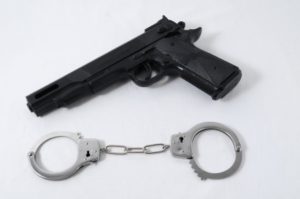 The Supreme Court continued in relevant part:
The Supreme Court continued in relevant part:
Gary argued that his guilty plea must be vacated because the District Court failed to advise him that, if he went to trial, a jury would have to find that he knew he was a felon. The Fourth Circuit agreed with Gary, holding that the failure to advise him of that mens rea element was a structural error that required automatic reversal even though Gary had not raised the argument in the District Court.
In felon-in-possession cases, a Rehaif error is not a basis for plain error relief unless the defendant first makes a sufficient argument or representation on appeal that he would have presented evidence at trial that he did not in fact know he was a felon. Under Rule 51(b) of the Federal Rules of Criminal Procedure, a defendant who has “an opportunity to object” to an alleged error and fails to do so forfeits the claim of error. If, as with Greer and Gary here, a defendant later raises the forfeited claim on appeal, Rule 52(b)’s plain error standard applies. See Puckett v. United States, 556 U. S. 129, 135.
To establish eligibility for plain-error relief, a defendant must show (i) that there was an error, (ii) that the error was plain, and (iii) that the error affects “substantial rights,” i.e., that there is “a reasonable probability that, but for the error, the outcome of the proceeding would have been different.” Rosales-Mireles v. United States, 585 U. S. ___, ___. If the defendant satisfies those three prongs, an appellate court may grant relief only if it also concludes that the error had a serious effect on “the fairness, integrity or public reputation of judicial proceedings.” Ibid. (internal quotation marks omitted).
Prong iii would seem to present a significant hurdle in a case like this. It is difficult to imagine a jury that a jury with knowledge of a defendant’s prior felony conviction would believe that he did not know he had a prior felony conviction. Moreover, disclosure of the existence of the felony conviction would further turn most jurors against him.
